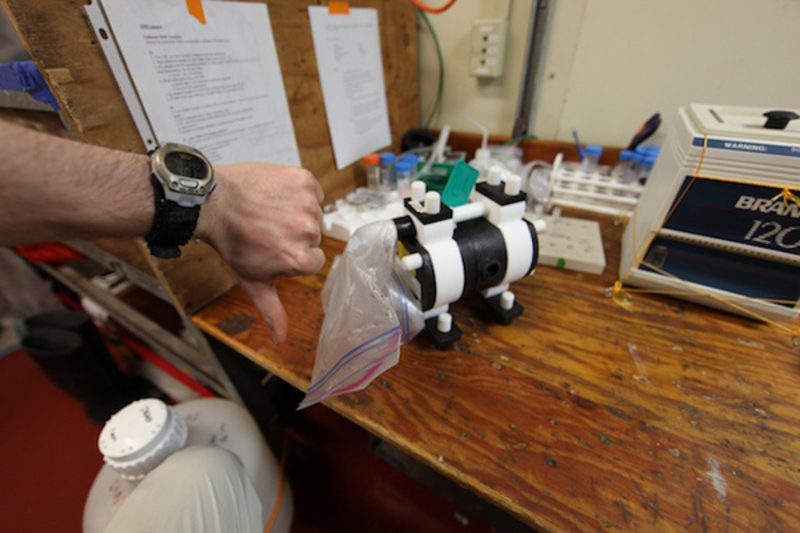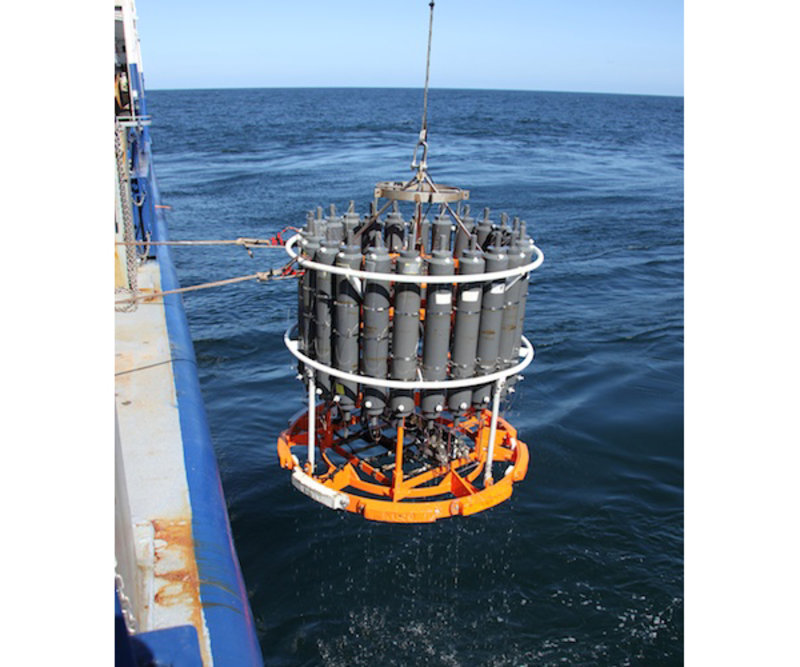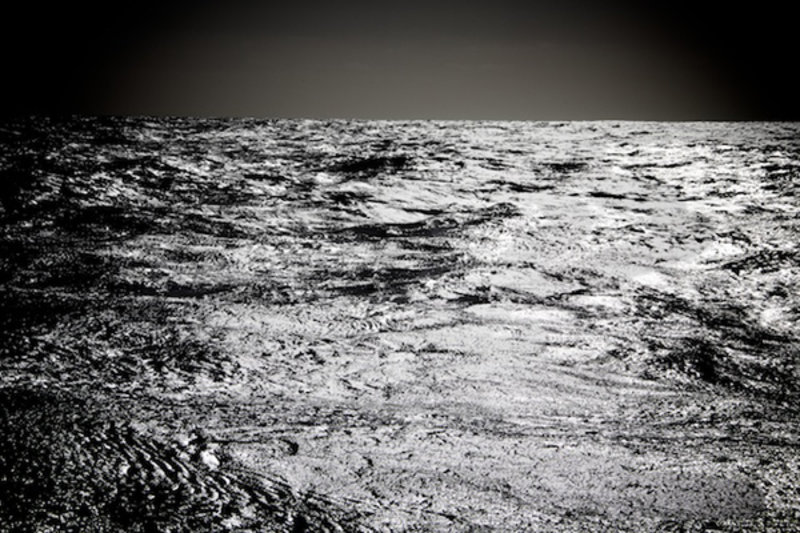
By Danny Richter, Scripps Institution of Oceanography
March 8, 2010
Death, like formaldehyde, is a part of science. It also stinks. Take for example my pump. It is dead. With its passing went my one way of being sure to get trace-metal-clean samples.
The loss of my pump would be a problem even on land, though not as bad. I would simply order the replacement parts, replace them, clean the instrument, and continue using it. But the reality of oceanographic research is that we are miles from land, off the coast of a country that may not even sell my pump or its replacement parts. Even if I could get the parts, the ship would be long gone on its next scientific voyage.

Saying good-bye to a pump: "Our time together was too short, my Teflon friend." Image courtesy of INSPIRE: Chile Margin 2010. Download image (jpg, 87 KB).
It is for these reasons that scientists who do field work (and oceanographers, in particular) have to be a special type of scientist with a special type of nerve (i.e., the type made of steel). You have to accept, before you even write that proposal to go to sea, that there is a very real possibility that when you put your equipment in the ocean, it will not come back. That very same equipment you paid thousands of dollars for, and on which you are depending so that you can get the samples for the papers that, in the end, will be the reason you have food on your table. No pressure, right?
Actually, it’s a lot of pressure, which is probably why oceanographers study the highest pressure environments on earth. We stare into the abyss (oceanographic or financial), and flinch not. It’s our job.

My new means of taking samples: the conductivity, temperature, depth (CTD) instrument. Image courtesy of INSPIRE: Chile Margin 2010. Download image (jpg, 102 KB).
The corollary to this is that oceanographers are great improvisationalists. Take for example my situation. Though my pump is dead, I have found an alternate means of obtaining samples. That is, to use the conductivity, temperature, depth (CTD) instrument. It is not ideal, but it also better than giving up. Trace-metal chemists have used CTDs in the past to get usable samples of dissolved iron, despite the fact that the line and frame of a CTD is one big chunk of iron. So, I have at least a shot at it working. Furthermore, I am not just interested in iron, but zinc, copper, cadmium, aluminum, and nickel, as well. I’m probably also hosed on the zinc (it’s used in anti-fouling paint and rubber). But even if only one metal turns out not to be contaminated, it will be worth it.

The abyss. You can stare at it, and it just stares back. Image courtesy of INSPIRE: Chile Margin 2010. Download image (jpg, 123 KB).
In short, oceanographers are like the gunslingers of the Old West. Our research lives and dies by fate and the speed with which we draw our plans. We practice, we prepare, but in the end we are not masters of our own destiny. We push and push ourselves mentally and physically to make the most of our always too-short time at sea, living hard but living full and rich. Death is a part of science, and it stinks. But the payoff is immortality: in the form of a break-through paper that people cite for decades, or as a yarn unspun again and again for generations of oceanographers about the limits of human endurance and the dizzying heights of ingenuity under pressure.